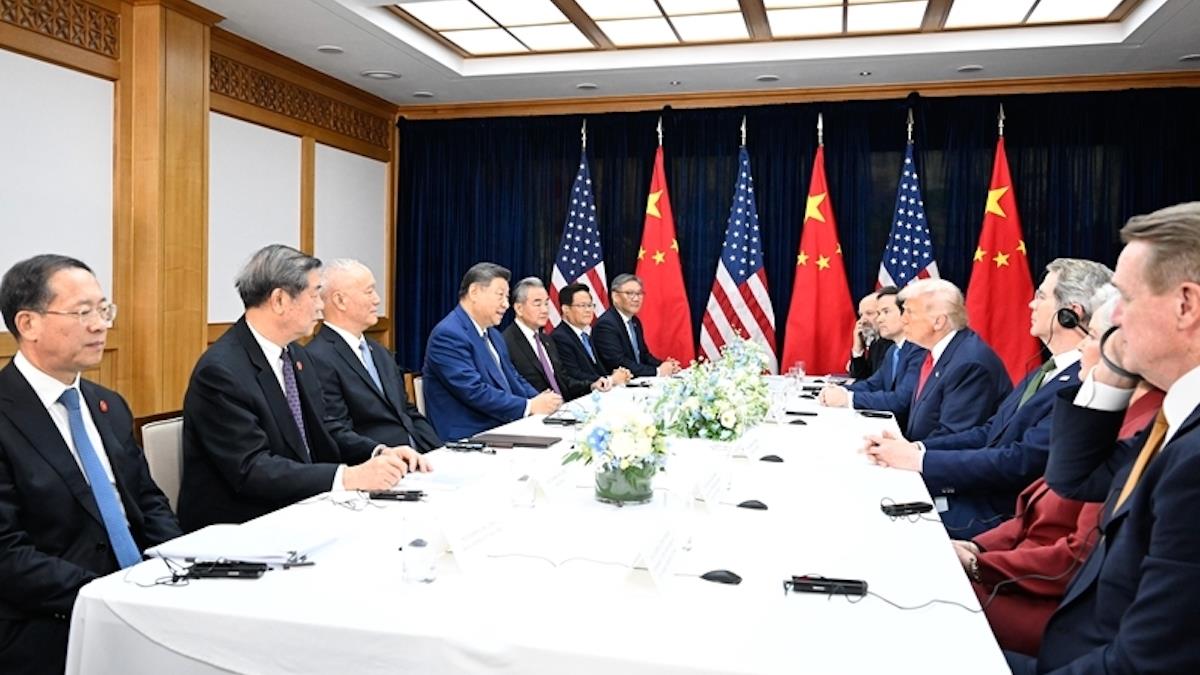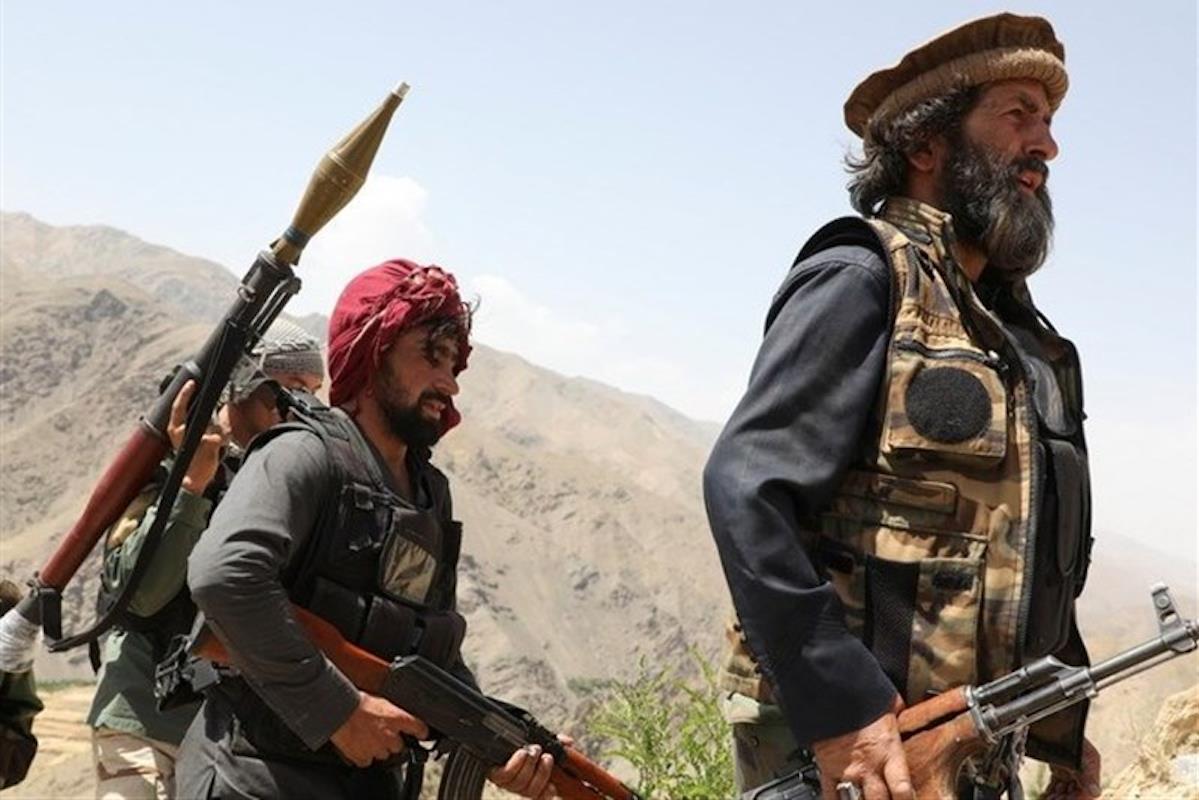
Taliban's Backing Of Militants Threatens Its Own Survival
For a movement that once promised to bring“stability” after decades of war, the Taliban's refusal to rein in cross-border militants and engage constructively with its neighbors signals a failure of both vision and governance.
Pakistan's Information Minister Attaullah Tarar's statement following the failed negotiations was telling.“The Afghan side kept deviating from the core issue,” he said, noting that Islamabad had sought concrete assurances to curb cross-border militancy.
Instead, the Afghan delegation avoided the question altogether – a move that suggests either deliberate denial or a dangerous lack of control over militant factions operating from Afghan soil.
The Istanbul dialogue, brokered by Qatar and Turkey, was meant to be a chance for both sides to reset after weeks of skirmishes that left dozens dead on either side of the border. But by refusing to commit to a verifiable plan against cross-border attacks, the Taliban effectively sabotaged their own opportunity for regional cooperation.
The Taliban's approach to foreign relations has been marked by a narrow and defensive nationalism, masquerading as ideological purity. Rather than building bridges with its immediate neighbors, the regime in Kabul has treated diplomacy as an extension of its militant doctrine - a zero-sum contest where compromise is seen as weakness.
This is not only self-defeating but perilous for Afghanistan's survival. A state that depends on foreign aid, faces food insecurity and lacks international recognition cannot afford to alienate its most important neighbor.
Pakistan has hosted millions of Afghan refugees for decades, offered trade routes and humanitarian support, and repeatedly called for international engagement with Kabul - even when the world turned its back after the Taliban's return to power in 2021.
Latest stories
Chinese pundits claim victory after Trump's trade concessions

US supersonic low altitude missile (SLAM) and Russian Burevestnik

Tokyo's youth culture district bans 'Nuisance Halloween' again
Instead of reciprocating that goodwill, the Taliban leadership has allowed its territory to become a launching pad for the Tehreek-e-Taliban Pakistan (TTP), whose attacks have claimed thousands of Pakistani lives. The TTP, known as the Pakistani Taliban, seeks to establish an Islamic emirate and rigid religious code in Pakistan.
The failure to distance themselves from such groups is not just a betrayal of Pakistan's trust - it is a reckless gamble with Afghanistan's own security and legitimacy.
What the Taliban fail to realize is that their foreign policy behavior is not being judged in isolation - it is being watched by every regional power seeking to test whether Kabul can act as a responsible sovereign government.
China, which has cautiously invested in Afghanistan's mining and infrastructure projects, is already uneasy about the Taliban's inability to control extremist groups that threaten Chinese nationals and Belt and Road projects in Pakistan. That includes the East Turkestan Islamic Movement (ETIM), an ethnic Uighur militant group that seeks independence for China's western Xinjiang region.
China's foreign ministry identified ETIM as a“severe threat to the security of China, Afghanistan, and the region” in a 2023 statement, which urged the Taliban to exert“greater determination” in cracking down on the militant group. In January, an Islamic group resisting Taliban rule, known as the National Mobilization Front, killed a Chinese national working for a mining company in the country's northeastern region.
Beijing's engagement with the Taliban has been transactional and pragmatic but not unconditional. The continued tolerance of cross-border militancy may convince China that Afghanistan remains too volatile for large-scale economic investment, including badly needed infrastructure.
Russia, which has engaged with the Taliban in quiet diplomacy through Moscow-format talks, sees Afghanistan as a potential buffer against Western influence and regional instability. Yet, the Kremlin's patience is also believed to be wearing thin.
The spread of militancy from Afghan soil into Central Asia undermines Moscow's security calculus. A government that cannot control its territory or prevent cross-border terrorism cannot be treated as a reliable partner - even within an anti-Western bloc.
In short, the Taliban's defiance not only alienates Pakistan but also risks eroding what little credibility Afghanistan has managed to muster since it seized power in 2021 in the wake of America's withdrawal. The message it sends to the world is clear: this is not a state ready to behave responsibly, but a movement still trapped in the insurgent mindset of the past.
Pakistan has endured years of violence spilling over from Afghanistan's chaotic borderlands, even as it sought diplomacy over confrontation. The Istanbul talks were the latest in a long series of attempts to find common ground - a reflection of Pakistan's desire to stabilize its western frontier through dialogue, not destruction.
Yet patience has its limits. Pakistan's recent airstrikes targeting militant sanctuaries in Afghan territory were not a declaration of war but a grim reminder that no state can tolerate unchecked aggression indefinitely. Even then, Islamabad made clear that diplomacy remained its preferred path - a signal of restraint rare in today's volatile neighborhood.
The Taliban's leadership could have used the Istanbul talks to reframe Afghanistan's image - to show that it could be a responsible actor in regional security. Instead, it clung to old grievances and ideological rigidity, alienating not just Pakistan but also key powers like China and Russia, which until now have quietly supported its inclusion in regional forums.

Sign up for one of our free newsletters
-
The Daily Report
Start your day right with Asia Times' top stories
AT Weekly Report
A weekly roundup of Asia Times' most-read stories
Such obstinacy carries heavy costs. It risks renewed border clashes, deepens Afghanistan's isolation and undermines any prospect of economic cooperation in South Asia - a region that desperately needs stability to attract investment and trade. With militant violence in Pakistan reaching a nine-year high, and Afghanistan's economy collapsing, neither country can afford this spiral.
The path to peace requires Kabul to accept a fundamental truth: sovereignty comes with responsibility. The Afghan Taliban cannot demand international recognition while tolerating or enabling cross-border terrorism. They cannot invoke brotherhood with Pakistan while ignoring the pain inflicted by Afghan-based militants on Pakistani soil.
For Pakistan, the challenge now lies in balancing firmness with foresight. Military action alone cannot deliver security unless paired with sustained diplomacy and regional consensus. But for that diplomacy to work, Afghanistan must first prove it is capable - and willing - to act like a responsible state, not a revolutionary movement stuck in the past.
In Istanbul, the Taliban had a chance to show maturity; it chose obstinacy instead. The cost of that choice will not be borne by diplomats in Ankara or Islamabad, but by ordinary Afghans and Pakistanis living in the shadow of another avoidable war. And by a regime that may soon find its last remaining friends in Beijing and Moscow are losing patience, too.
Advocate Mazhar Siddique Khan is a Lahore-based high court lawyer. He may be contacted at ....
Sign up here to comment on Asia Times stories Or Sign in to an existing accounThank you for registering!
An account was already registered with this email. Please check your inbox for an authentication link.
-
Click to share on X (Opens in new window)
Click to share on LinkedIn (Opens in new window)
LinkedI
Click to share on Facebook (Opens in new window)
Faceboo
Click to share on WhatsApp (Opens in new window)
WhatsAp
Click to share on Reddit (Opens in new window)
Reddi
Click to email a link to a friend (Opens in new window)
Emai
Click to print (Opens in new window)
Prin

Legal Disclaimer:
MENAFN provides the
information “as is” without warranty of any kind. We do not accept
any responsibility or liability for the accuracy, content, images,
videos, licenses, completeness, legality, or reliability of the information
contained in this article. If you have any complaints or copyright
issues related to this article, kindly contact the provider above.


















Comments
No comment